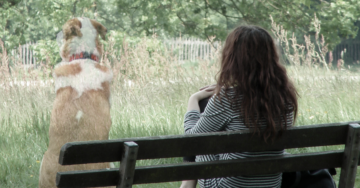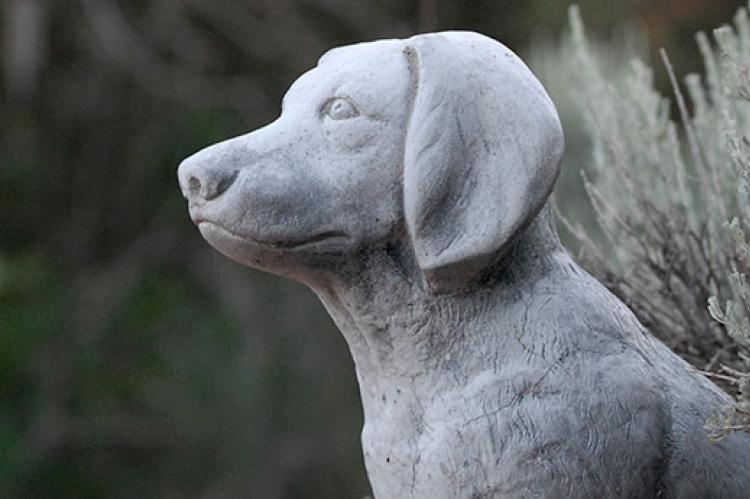Losing a pet is an incredibly difficult thing to go through.
A pet isn’t “just” a dog or a cat. To many people, their pet is a part of their family, as important as a human family member. We see them every day, we care for them, their safety and security is dependent on us. Pets can help us maintain an active social life, add routine and structure., and help us overcome challenges stemming from our daily lives in the human world.
When we lose a pet, the burden of coming to terms with coping on our own is sometimes overwhelming.
It’s good to remember that not everyone is an “animal person.” Grief cannot be ranked or quantified. Some will try to compare the loss of your pet to that of a human counterpart, not necessarily with the intent of hurting you or making your loss seem less significant, but as a means to make you feel better.
As with any death, people all tend to follow their own paths when it comes to grieving. It would be remiss not to mention the traditional stages of grief, but be aware you may not experience them all as an individual, and you may even skip some of them.
- Shock and denial: especially in the case of an accident or a sudden death, losing a pet can cause shock, and make you see the situation as surreal; as something that didn’t actually happen.
- Pain and guilt: Pain and guilt manifest in different ways for different people. Pain can sometimes show itself as a numbness or an inability to feel anything, or can appear as guilt. The wish and desire to have “done more” is very prevalent when it comes to losing a pet.
- Anger and bargaining: Especially if you lose a pet to an accident, anger is a very common feeling. “Why my pet? They were such a good pet! Why is this happening to me? If I could have just tried one more thing, if I had just a little more time…” These feelings are usually rooted in the past, and conflict with moving in a forward trajectory.
- Depression, reflection and loneliness: Always remember – it’s ok to be sad. It’s ok to remember the good times, and it’s equally as ok to remember the not-so-good times. Your house will sound incredibly empty, but try to take it in and know those memories you have are priceless.
- The upward turn: This is when you may decide to start looking for a new pet, or begin to appreciate the freedom of not having to care for a pet affords you. Which is also completely ok.
- Reconstruction and working through: You’ve begun to accept the passing of your pet, and are now able to reflect back on the situation.
- Acceptance and hope: At this stage, you know you’re going to be ok.

Again, you may not experience all of these, or even any of them. Everyone grieves differently, but there is an honest truth that applies to all – ignoring the pain or the obligations that come with a death only make things more difficult in the long run. If something happens down the road that brings back memories of your beloved pet, your emotions could kick-in to overdrive, causing you to feel things more intensely.
If you have recently lost a dog, contacting the municipality at 519-360-1998 to advise them cancel your registration is a good first step. By doing so, you won’t be asked to purchase a registration tag, and you won’t have to discuss the painful loss of your pet with one of our Animal Control Officers.
If your animal wasn’t under the care of a vet when they passed, contacting your veterinarian is also a good idea. Receiving a card to remind you of their upcoming shots or their annual checkup can cause undue stress and sadness to come back.
Nobel Prize winner Anatole France said it best.
“Until one has loved an animal, a part of one’s soul remains unawakened.”
Good or bad, happy or sad, our pets make us feel. And because of that, we love them.


